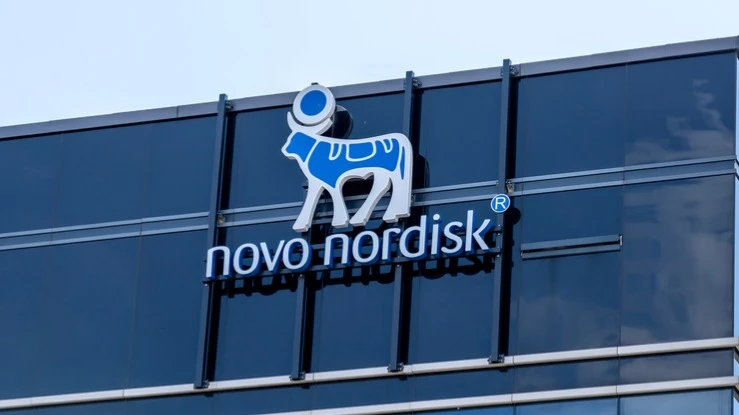UBS no longer advises buying shares in the maker of Ozempic. Is it inferior to a competitor?
Since the beginning of the year, Novo Nordisk's market value has fallen 50 times more than that of its main competitor, Eli Lilly

An analyst at UBS has downgraded the shares of Novo Nordisk, the Danish maker of weight loss drugs Ozempic and Wegovy, from "buy" to "neutral" and sharply, almost halving its target price. The investment bank noted that Novo Nordisk is under increasing pressure from its main competitor, U.S.-based Eli Lilly, as well as companies making cheap copies of Ozempic. Most analysts on Wall Street now take a neutral stance on Novo shares.
Details
UBS analyst Matthew Weston downgraded Novo Nordisk's stock from Buy to Neutral and cut his target price almost in half, from 600 to 340 kronor, reports MarketWatch. Watson's new target was the second-lowest among all analysts tracking the company's securities, FactSet shows, but it still implies Novo's stock will rise another 11% from its closing level on Aug. 5.
One of the reasons for the rating revision was the rapid growth of compounders - companies producing customized and cheaper versions of drugs, including Ozempic. Under current U.S. regulations, such copies are allowed only if there is a shortage of the original drug, but according to UBS, manufacturers like Hims and Hers continue to bypass the regulator.
"Despite the unprecedented scale of personalized compounding, our experts do not expect the situation to change: The [U.S. drug regulator] FDA appears to be in no hurry to intervene - there is a reduction in personnel responsible for oversight, and there is no obvious safety threat to Americans yet," a UBS analyst noted in a MarketWatch statement. - In addition, intervention may be politically disadvantageous, because we are talking about more affordable drugs based on [the active ingredient in weight-loss drugs] semaglutide, which help a million people in the U.S. to lose weight and improve health."
But the fight against copies is not the only challenge for Novo Nordisk, the analyst emphasizes. The company is losing market share to Eli Lilly's Mounjaro and Zepbound, and health insurance programs are reluctant to include Novo Nordisk drugs in their reimbursement lists.
"Ozempic appears to have reached a plateau early despite strong brand recognition, which we believe indicates a much warmer reception of Mounjaro's drug among physicians," the analyst added.
In addition, even if the Trump administration approves reimbursement of weight-loss drugs like Ozempic under the Medicare health insurance system, the Most Favored Nation rule - a trade rule that requires the U.S. to get the same favorable terms on the price of goods as other "select" countries if it already buys those goods cheaper. - OnInvest) could force them to be sold in the U.S. at European prices. According to a UBS analyst, this would "significantly reduce the value" of the product.
What about the stock
Novo Nordisk shares dropped 2.3% to 305.9 kroner ($47.4) per paper at the close of trading in Copenhagen on Tuesday, Aug. 5.
Since the beginning of the year, the market value of the company has gone down by almost 51%. For comparison: Eli Lilly securities fell in price by 0.8% over the same period.
Novo Nordisk lost about 23% of its market value in a single trading session on July 29, marking its worst day in 40 years. Investors shrugged off the company's securities after it unexpectedly - for the second time in 2025 - lowered its sales and earnings forecast amid weakening demand in the U.S. due to competition from Eli Lilly and pressure from copies of its drugs.
What others think
According to data from MarketWatch, half of the analysts tracking Novo Nordisk securities - 16 out of 32 - advise investors to buy them (Buy and Overweight ratings). Another 13 analysts recommend Hold, while three recommend Sell. Wall Street's consensus target price for Novo's U.S. depositary receipts is $77.8 per paper - nearly 60% above the close of U.S. trading on August 4.
This article was AI-translated and verified by a human editor
